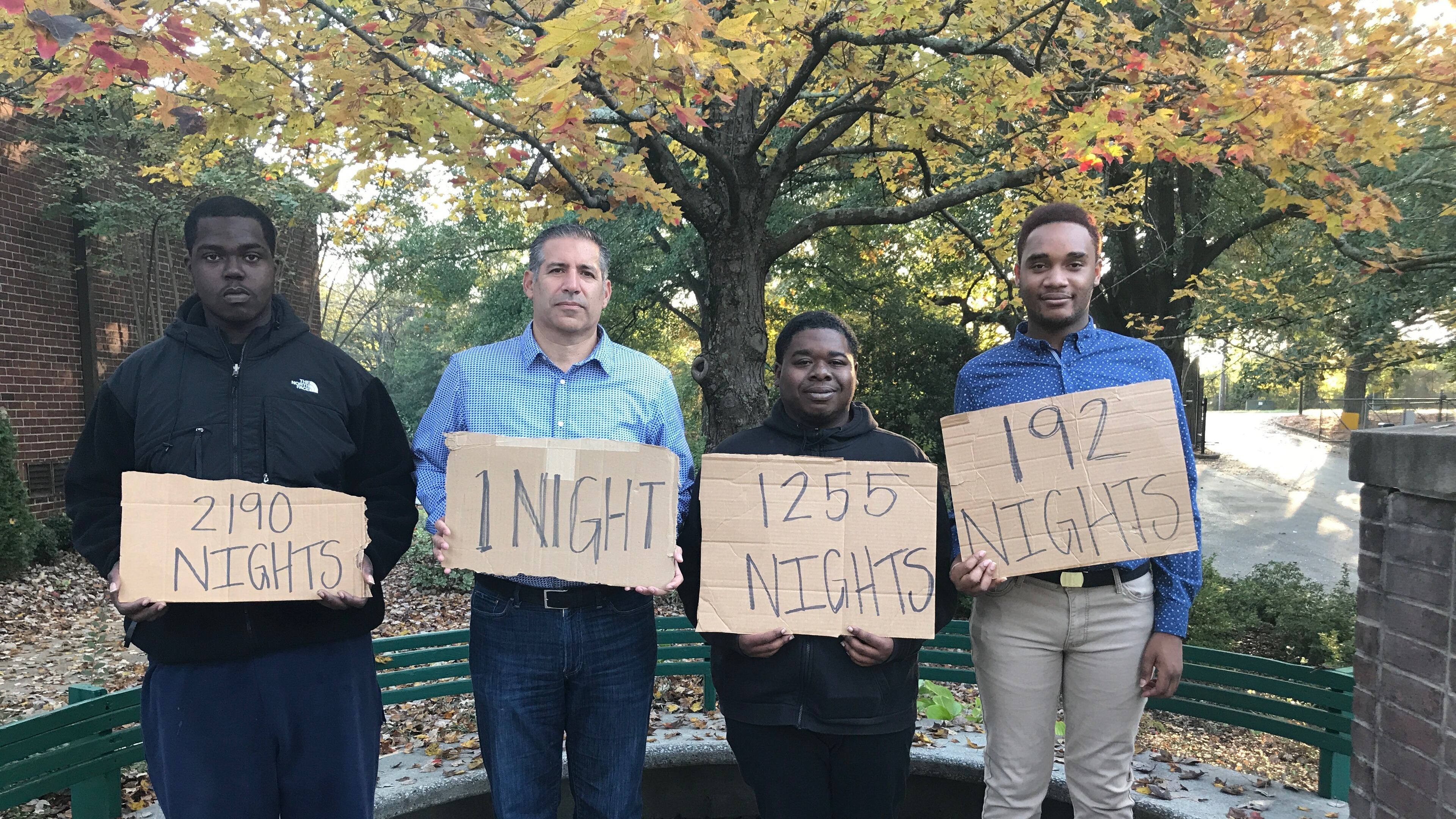
It was cold, and the ground was especially hard. At 3:14 a.m., I was abruptly awakened by the beeping of semitrailers backing into their stalls in Atlanta’s Westside industrial district. With temperatures in the 30s, I tried to go back to sleep, but all I did was roll around on the bumpy, uneven ground, searching to find a warm and comfortable position.
I never did.
My only comfort that recent evening was that I was joined by more than 110 Atlanta business and community leaders who agreed to sleep outside to raise money and awareness for Covenant House Georgia (CHGA), a shelter and service provider for youth overcoming homelessness and escaping trafficking in metro Atlanta. CHGA is a local affiliate of Covenant House International, which includes 31 sites across six countries.
The evening is designed to give us a small sense of what many brave and courageous young people deal with every day. To say it’s sobering is a massive understatement. Many of the 1,300 youth (ages 16 to 24) served by CHGA last year spent thousands of nights on the streets, never knowing when they’d experience their next meal and the comfort and safety of their own bed.

When I got up the next day after not having slept that night, I was sore, tired and hungry, but, most importantly, grateful that I would be able to sleep in my own bed later that night.
Youth homelessness is a crisis in our country and here in Atlanta. There are over 3,330 young people facing homelessness in metro Atlanta every night. The issue is even more pronounced as our young people continue to face increased job loss and housing evictions caused by COVID-19.
There’s a common misconception about the youth that come through CHGA’s doors – that if they are homeless, they did something to deserve it.
This couldn’t be further from the truth.
The majority of youth experiencing homelessness come from unstable homes. According to CHGA data, 40% have a history in the foster care system, 78% have witnessed or experienced violence in their homes or neighborhoods, 50% have witnessed a parent being incarcerated, 42% were physically abused and 49% were sexually abused or exploited as a child.
These data points were brought to life in vivid detail when CHGA youth shared their personal stories during the Sleep Out. Each shared their personal journey with incredible composure, grace and bravery. The common threads of family neglect, sexual, physical and emotional abuse, bullying at school, being trafficked and committing crimes to make ends meet came through in almost every situation.
Take the story of Anthony. His dad left him and his mom when he was an infant, and his mother was mostly absent, leaving him to essentially raise himself. He sought to reconcile with his abusive birth father, but was rejected by his family because he is gay. Anthony was bullied in school, so he had no safe space.
Now in his 20s, he relocated to Atlanta and came to CHGA for a fresh start. He now resides in a transitional living program at CHGA, and has a steady job. His goal is to save enough money to get his own apartment, and advance with his current employer.
When Anthony was asked what he is most proud of at this young age, he paused for a lengthy moment, looked up to the ceiling and bravely shared “just being here.”
The evening’s most inspirational moment was when we heard from Kaye Muse. In 2012, Kaye experienced homelessness and sought the support of CHGA. She briefly lived in the shelter then moved to CHGA’s long-term housing program. Kaye focused on her goals and utilized all opportunities presented to her. She earned her college degree, and is now an associate manager at Accenture Consulting. Kaye established an annual scholarship fund for aspiring college students, and is currently an International MBA candidate at the University of South Carolina’s top-ranked Darla Moore School of Business. Coming full circle, Kaye recently joined the board of directors of CHGA.
During the candlelight vigil that evening, another youth, also named Anthony, shared how valued he felt since coming to CHGA. He’s in the process of completing his GED, and wants to start a graphic design business within five years. He closed with these comments: “To every young person that has ever felt silenced, invisible and just simply thrown away to the streets please keep fighting; stay the course. This is only a part of our journey; there are brighter days ahead, and we shall overcome!”
The strength, fortitude and resilience that Anthony, Kaye, Anthony and all the other CHGA youth demonstrate each day is inspiring. Against all odds, they have proven that anything is possible.
Ben Deutsch is chairman of the board of Covenant House Georgia.


